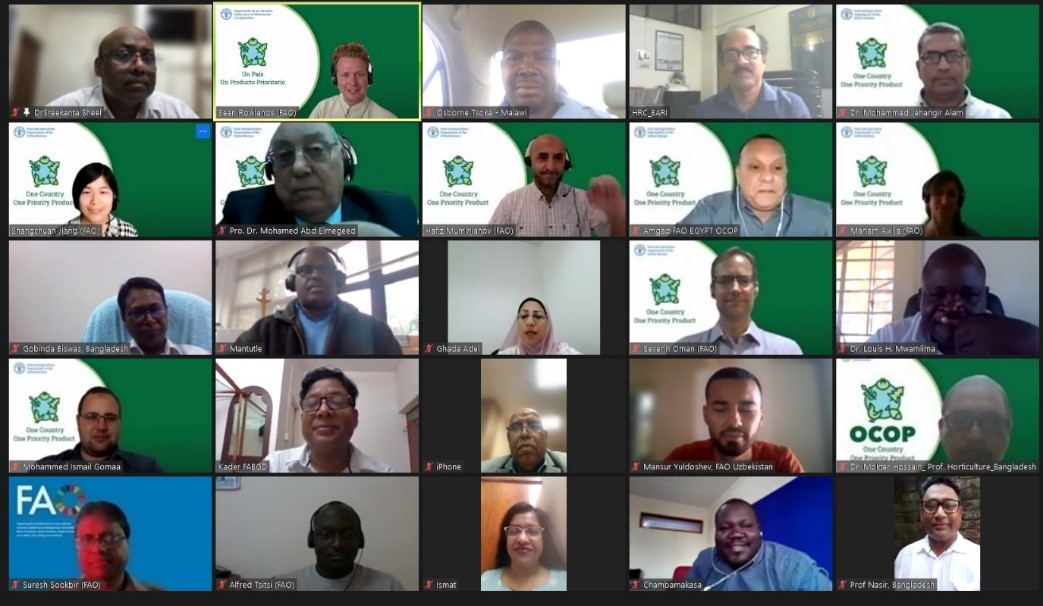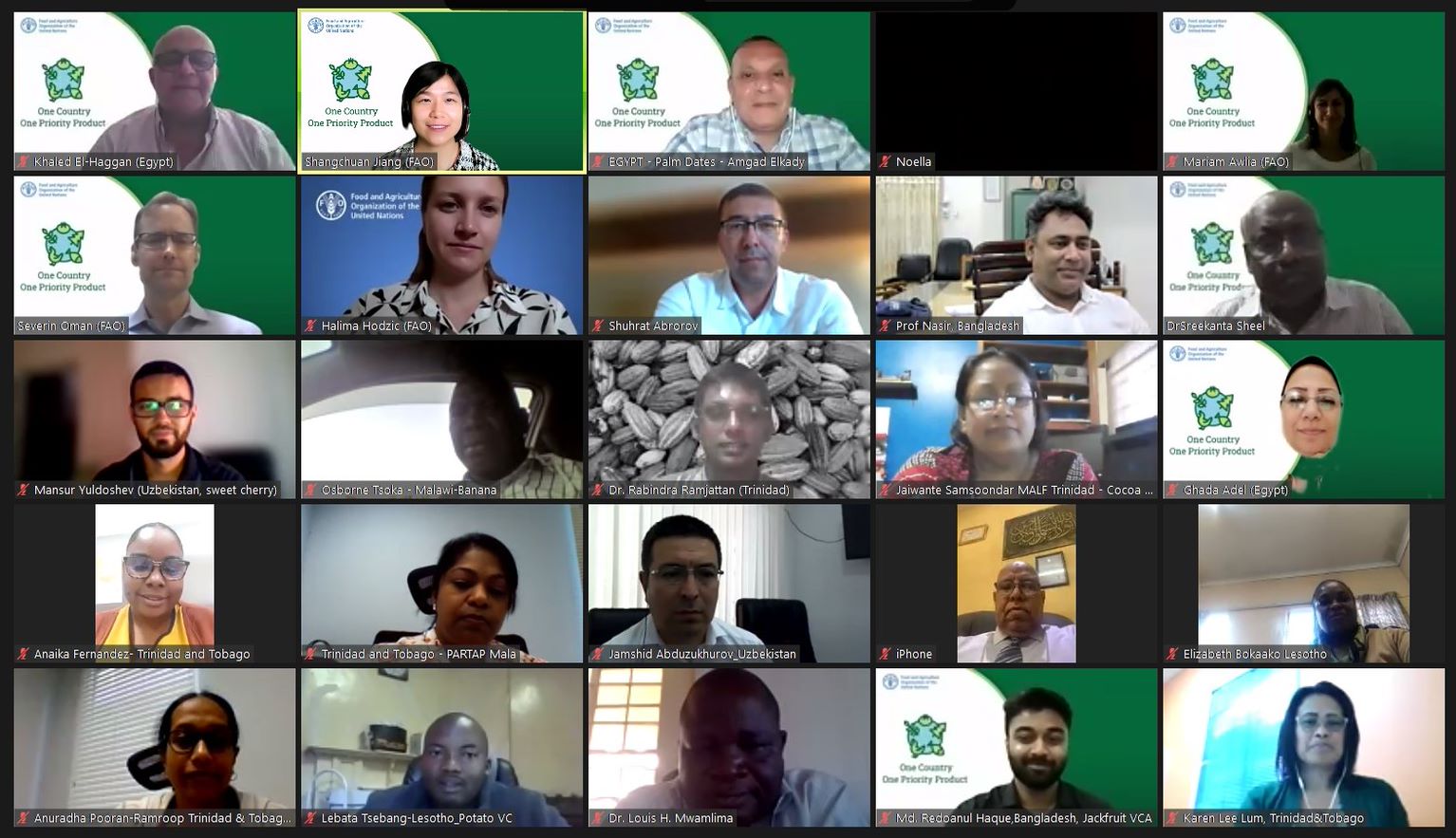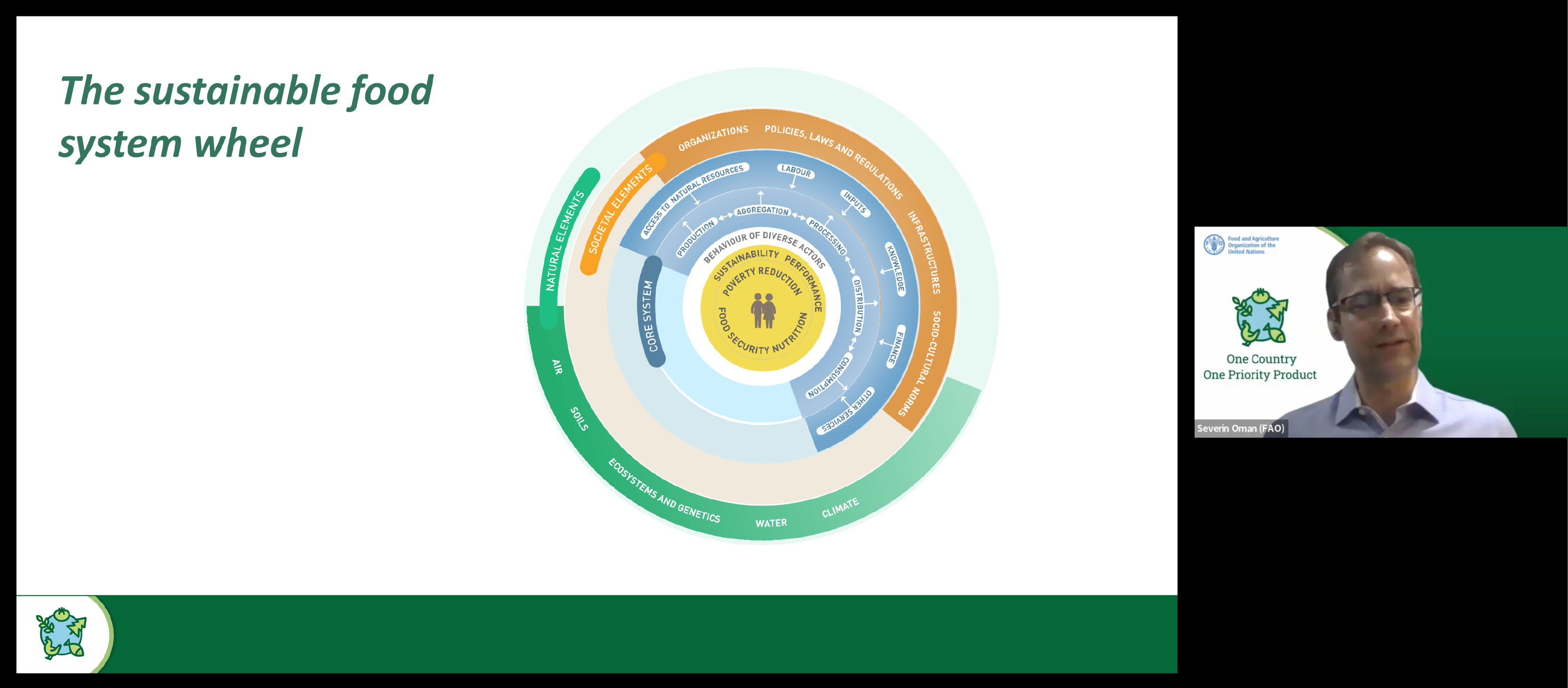News
Expert training on value chain analysis for OCOP Demonstration Countries from all FAO Regions

Rome – A four-session training on the sustainable food value chain analysis methodology was held on 30 May and 20 - 22 June 2023 for the One Country One Priority Product (OCOP) demonstration countries representing all FAO regions. Over fifty participants, mainly from Bangladesh, Egypt, Malawi, Trinidad and Tobago, and Uzbekistan took part to learn about analysis and design in Sustainable Food Value Chains (SFVC). During the sessions, they developed their capacity to understand the production, processing, storage and marketing of their selected Special Agricultural Products (SAPs) in order to make improvements to their agrifood systems.
The training materials and the recording of the sessions will soon be available on the OCOP Trainings and Webinars webpage linked below.
 |  |
Participants from demonstration countries and OCOP Secretariat facilitators in SFVC training sessions on 30 May (left) and 20 June (right)
Outline of the training and points of discussion from participants
Hafiz Muminjanov, OCOP Global Coordinator, welcomed Severin Oman and Halima Hodzic, FAO International Value Chain Consultants who are leading the training course. Hafiz kicked off the training by highlighting that the value chain analysis skills will be of great importance for capacity development and will be used to prepare a report to be used for sustainable value chain development of their selected SAP.
Severin Oman then presented the key concepts and objectives of the SFVC and then facilitated a discussion on approaches to data gathering. Halima Hodzic elaborated by presenting the technique and usefulness of value chain mapping. Subsequently, SFVC was further elaborated and applied to each demonstration country’s SAP in three in-depth and practical sessions that further explored value chain mapping, end-market analysis, sustainability hotspots, and implementing a theory of change.
 | .png?sfvrsn=d2c0d9bf_1) |
| Severin Oman presenting key concepts on day one of the training | Halima Hodzic presenting value chain mapping on day one of the training |
Each participating country team includes OCOP National focal points from the government and FAO country offices, national consultants and implementing partners and stakeholders representing the government, research institute and private sector, all of whom are knowledgeable and dedicated to the sustainable development of the SAP in their country. Experts from the Shandong Institute of Pomology, China and the Chinese Academy of Tropical Agricultural Sciences, as well as the OCOP National Focal Points from Lesotho also attended the training sessions.
The participants were active in the discussions during these training sessions and highlighted how they can benefit from the skills and techniques acquired. The expert trainers will continue to collaborate with demonstration countries to explore SAP value chains to find ways to make improvements for economic, environmental, and social benefits. “It was a really holistic approach to looking at the value chain. The learnings you have shared will be greatly beneficial for us as we upgrade our cocoa value chain” said Professor Pathmanathan Umaharan, OCOP Technical Expert and Director at Cocoa Research Centre, the University of the West Indies at St. Augustine, Trinidad and Tobago.
In her closing remarks, Shangchuan Jiang, OCOP Project Manager, thanked the International Value Chain experts for their excellent training, the participants for their active engagement, and all the organizers for coordinating the sessions. Despite the different situations of each demonstration country and their selected SAP, Shangchuan noted that the SFVC methodology can be used to identify innovative solutions that enable sustainable development in a wide range of OCOP project countries.
Applying value chain analysis for OCOP implementation
Once published, the SFVC report for each demonstration country SAP will underpin sustainable development activities with evidence and strategic recommendations. Thus, the output of these training sessions will further support the formulation of 'enablers' for the value chain development of selected SAPs (e.g., development strategies, national programmes and sector plans). Moreover, other OCOP country projects around the world can refer to these demonstration country reports to apply this methodological model in their contexts and bolster the impact of their OCOP country projects.
